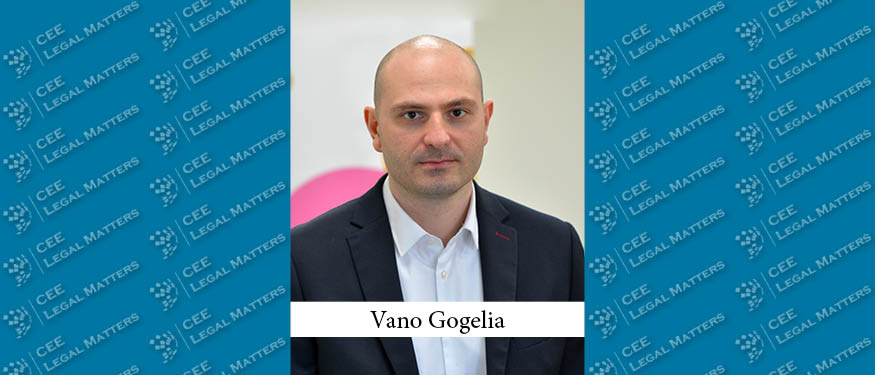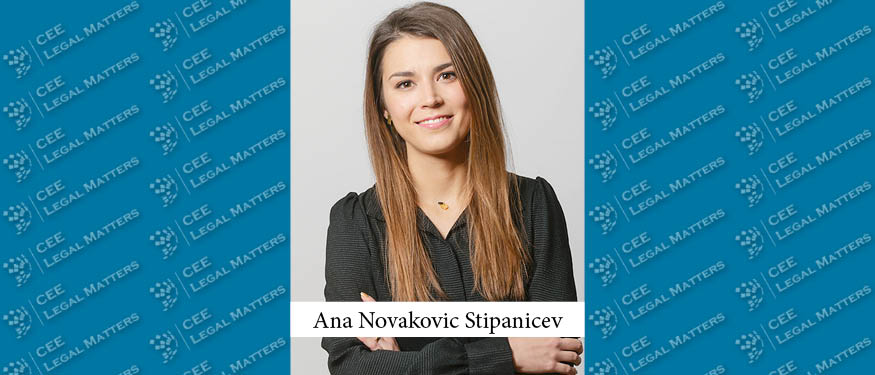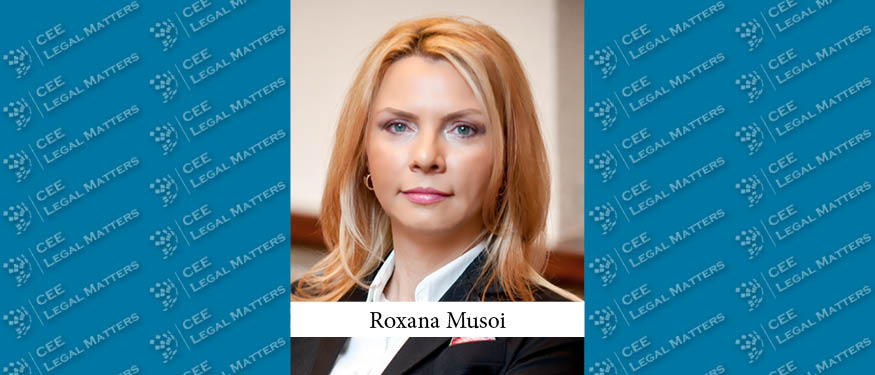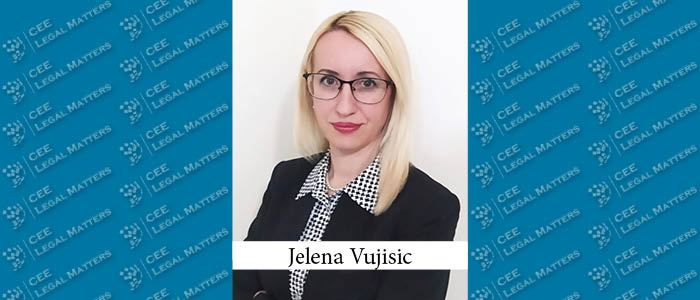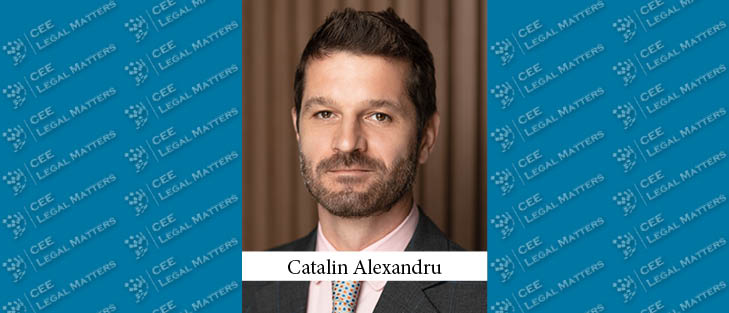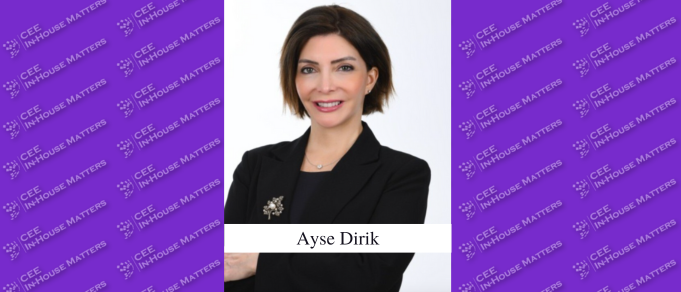Pekin Bayar Mizrahi Senior Partner Selin Bayar discusses Turkiye’s economic challenges, rising labor costs, and evolving regulatory landscape in the financing world.
Finding Niches in Ukraine: A Buzz Interview with Armen Khachaturyan of Asters
Amid the daily disruptions of war, Ukraine’s legal market has shifted focus to urgent areas like military law, sanctions compliance, and damage compensation, while adapting to workforce shortages and declining revenues, according to Asters Senior Partner Armen Khachaturyan.
Political Turbulence in Georgia and Its Cooling Effect: A Buzz Interview with Vano Gogelia of PwC Georgia
Georgia’s post-election turbulence has cast a shadow over its business and legal landscape, with pro-EU momentum suspended as of now and investor confidence somewhat shaken, PwC Legal Director and Head of Legal Vano Gogelia reports. Despite the uncertainty, key sectors like construction, infrastructure, and energy remain active, providing cautious optimism amidst widespread challenges.
A Rare Pessimism Level in Austria: A Buzz Interview with Markus Piuk of Schoenherr
Austria is facing a challenging economic landscape marked by rising insolvencies, sectoral struggles, and shifting legislative priorities, according to Schoenherr Partner Markus Piuk, who highlights the resilience of the legal profession and the transformative potential of AI in reshaping it.
Steady Sailing for Croatia: A Buzz Interview with Ana Novakovic Stipanicev of Kovacevic Prpic Simeunovic
It's been a dynamic year for Croatia according to Kovacevic Prpic Simeunovic Partner Ana Novakovic Stipanicev, who highlights robust M&A activity, political stability fueling investor confidence, and key regulatory developments as reshaping sectors like energy, real estate, and public procurement.
Slovenia's Exciting Year Ahead: A Buzz Interview with Aleksandra Mitic of Kavcic, Bracun & Partners
As 2024 wraps up, Slovenia is thriving with growth in IT, healthcare, real estate, and renewables, according to Kavcic, Bracun & Partners Partner Aleksandra Mitic, who notes that despite external challenges, optimism is high and key projects and investments are setting the stage for an exciting year ahead.
Navigating Uncertainty in Bulgaria: A Buzz Interview with Mitko Karushkov of Karushkov Legal Solutions
Navigating the challenges of Bulgaria’s legal and regulatory environment requires a careful balance, particularly in light of ongoing political instability, according to Karushkov Legal Solutions Founder Mitko Karushkov who takes aim at systemic issues affecting legislative processes, judicial stability, and regulatory reliability, while highlighting the importance of proactive risk management and the potential for growth amidst uncertainty.
Entrepreneurs' Shift in Mentality in Romania: A Buzz Interview with Roxana Musoi of Radulescu & Musoi
Radulescu & Musoi Partner Roxana Musoi reflects on a dynamic year for Romania’s M&A market, highlighting shifting entrepreneurial mindsets and opportunities driven by European funds.
Montenegro's EU Journey: A Buzz Interview with Jelena Vujisic of Vujacic Law Office
Montenegro is seeing major changes with the election of a new Supreme Court President, the creation of a state-owned development bank, and tax reforms under the Europe Now 2 program, aligning the country with EU standards, according to Vujacic Law Office Partner Jelena Vujisic.
Slovakia Trying To Consolidate Its Books: A Buzz Interview with Sona Hankova of CMS
A tax reform, updated labor costs, and ESG compliance challenges are some of the main challenges facing businesses in Slovakia at the moment, according to CMS Partner Sona Hankova.
Serbia's Big Money Moves: A Buzz Interview with Nikola Sugaris of ZSP Advokati
Serbia’s capital markets are maturing, with bond issuances expected in 2025 and renewed interest in alternative investment funds following reduced thresholds, according to ZSP Advokati Partner Nikola Sugaris.
A Challenging Year in Hungary: A Buzz Interview with Csaba Polgar of Pontes Budapest
Hungary’s economy and legal market have faced a tough year, shaped by political tensions, economic challenges, and global uncertainty, according to Pontes Budapest Partner Csaba Polgar, and from delayed investments to unpredictable regulations, the market has been navigating a challenging and uncertain landscape.
Cultures Clash in Bulgaria: A Buzz Interview with Ventsislav Tomov of Schoenherr
As Schonherr Head of Intellectual Property and Dispute Resolution practices in Bulgaria Ventsislav Tomov explains, Bulgaria’s delicate political situation and unreliable judicial system are creating a challenging environment for both local and international businesses. Amid these uncertainties, internal corporate investigations are on the rise, driven by cultural clashes between Western investors and Bulgarian management as well as growing concerns over compliance and governance.
Slower but Not Less Interesting Times in Romania: A Buzz Interview with Catalin Alexandru of Filip & Company
Filip & Company Partner Catalin Alexandru dives into Romania's legal and business landscape, examining the impact of election-year dynamics on regulatory activity, the Constitutional Court's landmark decision on the windfall tax, the surge in public-private partnerships tied to infrastructure projects, and the general market trends.
Good Laws, Difficult Execution in Kosovo: A Buzz Interview with Shkumbin Asllani
Inlex Managing Partner Shkumbin Asllani reports on the country's ambitious goals for economic growth outlining Kosovo's recent legislative efforts to promote renewable energy, attract investments, and develop capital markets while remaining cautiously optimistic, noting that implementation could face challenges.
Ukraine's Closer Look at SOEs: A Buzz Interview with Volodymyr Igonin of Vasil Kisil & Partners
Vasil Kisil & Partners Partner Volodymyr Igonin reports ongoing reforms in Ukraine amid the challenges of war, highlighting ambitious governance reforms, particularly in the state-owned enterprise sector, and a drive to attract investment through privatization and risk-protection measures. Despite obstacles, Igonin notes that both local and foreign businesses are investing in Ukraine, reflecting a cautious optimism for the country's economic future.
All Serbian Eyes on Expo 2027: A Buzz Interview with Rastko Malisic of MMD Advokati
Serbia appears to be entering a period of robust growth and transformation, driven in large part by Expo 2027 and targeted investment initiatives, according to MMD Advokati Partner Rastko Malisic. While the real estate and hospitality sectors are at the forefront of this boom, Malisic notes that other industries are grappling with challenges amid broader geopolitical uncertainties.
Slovenia's Push for Quality of Life Improvements: A Buzz Interview with Dinar Rahmatullin of Krizanec & Partners
Slovenia’s real estate market is thriving, with robust foreign and domestic investments. Key legal and industrial shifts such as new work-life balance laws and reforms in the energy and healthcare sectors are reshaping its economic landscape, according to Krizanec & Partners Partner Dinar Rahmatullin.



